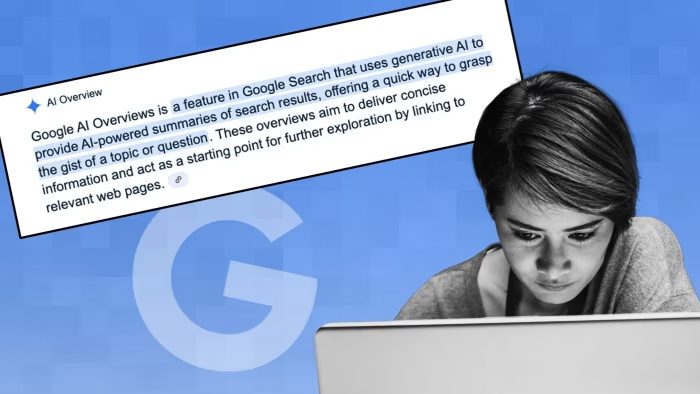Italian news publishers have called on national competition authorities to investigate Google’s AI Overviews feature, accusing the tech giant of undermining the visibility of independent journalism and threatening the economic sustainability of the media industry. The demand has heightened tensions between media organizations and major AI platforms across Europe amid growing legal scrutiny of how generative AI reshapes the information market.
Publishers File Complaint With Competition Authority
The Federation of Italian Newspaper Publishers (FIEG) this week lodged a formal request with Italy’s antitrust regulator, the Autorità Garante della Concorrenza e del Mercato (AGCM), asking it to examine the effects of Google’s AI-generated search summaries. FIEG described the feature as a “traffic killer,” arguing that it reduces user engagement with news websites by presenting AI-curated content directly on Google’s results page.
In its statement, the federation said AI Overviews “consolidate traffic and revenue within the Google ecosystem, depriving publishers of the visibility and access necessary to sustain independent journalism.” FIEG accused Google of distorting the digital information market and potentially breaching European competition rules that prohibit self-preferencing by dominant online platforms.
How AI Overviews Work
Google launched AI Overviews in 2024 as part of its effort to integrate generative AI into search. The feature uses large language models to produce concise, context-based summaries that answer users’ queries, often citing web sources or linking to additional information.
While Google presents AI Overviews as an improvement in search efficiency, many news outlets claim it discourages readers from clicking through to original sources. Reports from digital analytics firms suggest that webpages appearing within AI Overviews experience measurable declines in traffic.
“The balance has shifted from discovery to substitution,” said one Italian editor quoted in FIEG’s submission. “Users no longer need to leave Google to get the essence of our reporting.”
Legal and Regulatory Implications
FIEG’s complaint aligns with similar actions by media organizations elsewhere in the European Union. Analysts believe it could test how the EU’s Digital Markets Act (DMA) applies to AI-powered search systems. The DMA imposes obligations on “gatekeeper” companies, including Google, to ensure fairness and transparency when dealing with third-party content.
According to competition lawyers, the Italian case raises two critical legal questions:
- Does integrating AI Overviews into search constitute an abuse of market dominance by diverting users away from publishers’ content?
- Could generating summaries from published material without fair compensation infringe copyright or neighboring rights provisions under the EU Copyright Directive?
The AGCM could explore both dimensions if it opens a formal inquiry. Past decisions suggest the regulator may take a strict stance: in 2021, it fined Google €102 million for abusing its position in the smart mobility market.
Broader European Pushback
Italy’s move follows similar concerns voiced by publisher associations in France and Germany, which have urged regulators to assess how AI-generated search features may impact competition and copyright. The issue has caught the attention of Brussels policymakers, who are in the process of refining new rules on AI accountability under the proposed AI Liability Directive.
The European Commission has so far refrained from commenting on the Italian complaint but has previously emphasized that digital gatekeepers must ensure that their AI-driven innovations do not disadvantage content creators.
Some policymakers have signaled that existing frameworks may soon need updating. “Generative AI requires us to rethink the equilibrium between innovation and journalistic sustainability,” said one official from the European Parliament’s Committee on Culture and Education.
Google’s Response
In a statement sent to Italian news outlets, Google defended its AI Overviews feature, insisting that it helps users explore topics more thoroughly and can drive additional traffic to publisher websites. The company claimed that early data showed “increased engagement with authoritative news sources” and highlighted that each summary includes citations and links to original reporting.
“AI Overviews are designed to complement, not replace, the open web,” a company spokesperson said. “We continue to collaborate with publishers to support quality journalism and ensure transparency in how information is presented to users.”
However, publishers remain unconvinced. FIEG has urged Google to disclose detailed metrics on how often news content appears in AI-generated results and what share of traffic those summaries redirect to original outlets.
Threats to Journalism’s Business Model
Behind the legal debate lies a fundamental concern about the future of news funding. Independent journalism relies heavily on online traffic for advertising revenue and subscriptions. By centralizing answers within its platform, publishers argue, Google undermines that dynamic , replacing the open web with an AI-mediated layer that diminishes publishers’ direct connection with audiences.
Industry analysts warn that such structural changes could weaken editorial independence. “Without sufficient traffic and visibility, many outlets may struggle to maintain the resources required for investigative reporting,” said Marco Pratelli, a media law researcher at the University of Bologna. “AI Overviews may appear neutral technologically, but economically, they rewire the flow of value across the information ecosystem.”
A Test Case for AI and Antitrust
If the AGCM proceeds with an investigation, it would mark the first formal European probe into the competitive impacts of an AI search interface. The case could set a precedent for how regulators interpret the responsibilities of generative AI systems within dominant digital platforms.
Specialists believe a range of remedies could emerge , from transparency requirements around AI outputs to new mandates for sharing revenue with content creators. Should the issue escalate to the European level, it may also inform how future AI regulations balance the freedom to innovate with obligations toward the traditional press.
For now, the standoff between Italian publishers and Google underscores a growing question confronting lawmakers worldwide: how to regulate AI tools that increasingly act as intermediaries between citizens and information. As Italy’s competition watchdog deliberates on whether to take up the complaint, the outcome could shape not only media law but also the future economics of AI-assisted information access across Europe.

